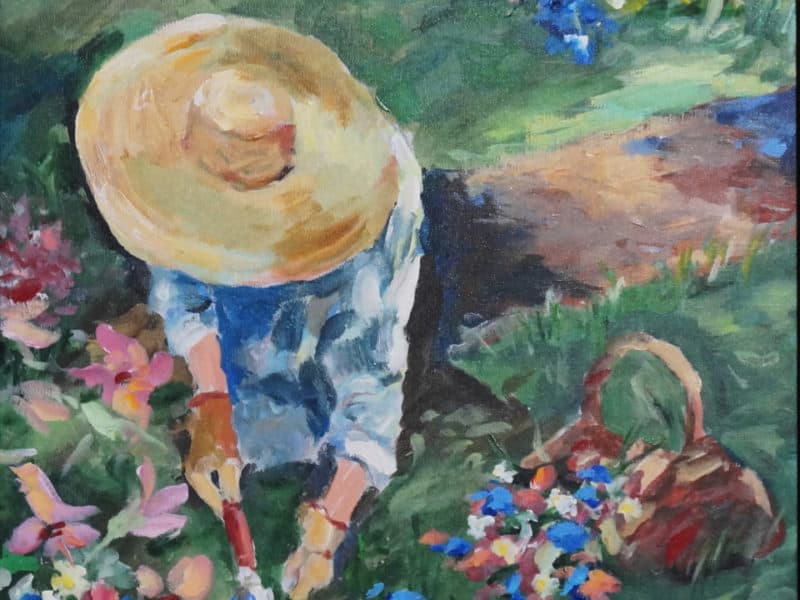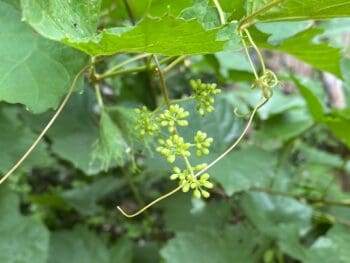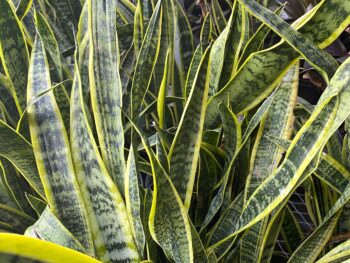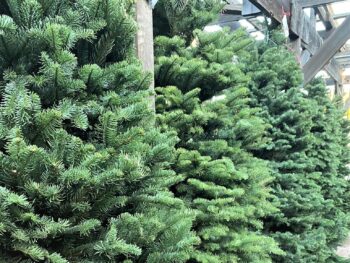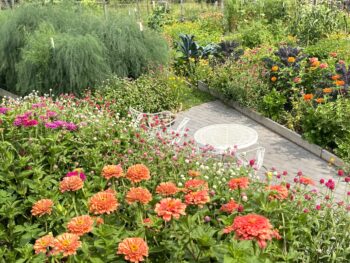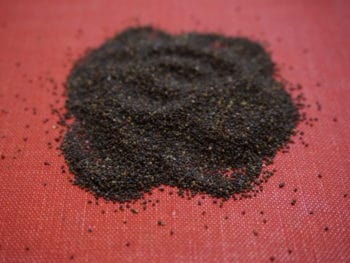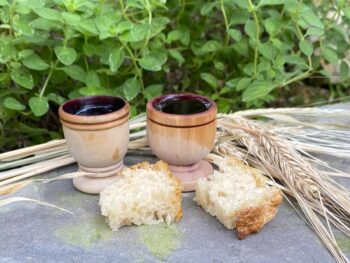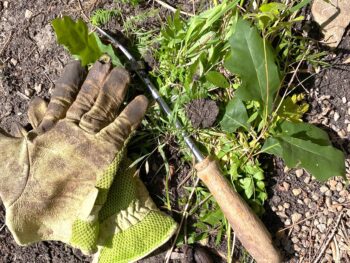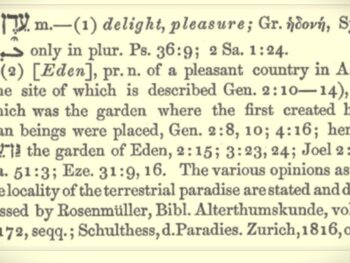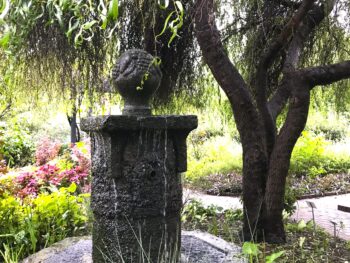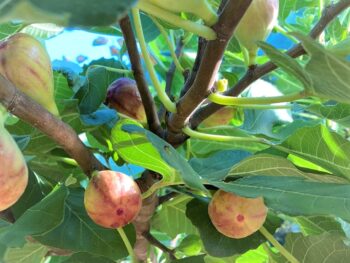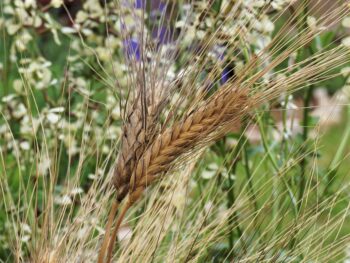The Lenten season began yesterday, 40 days sectioned off as a prelude to Easter Sunday.
Why set apart these days? To draw closer to the Lord, in hope of taking hold of a deeper understanding of His gracious, glorious saving act celebrated on the approaching day. How are we going to do that? Come with me, dear gardener…let us choose something in common between God’s Word and our gardens, seeking Scriptures and cultivating plants, and see what might be revealed. How about “flowers of the field?”
Flowers of the Field
“Flowers of the field,” is a small phrase depicting a great expanse of wildflowers. Flowers are designated attractors—to catch the eye, enthrall with scent, capture attention, welcome entrance—for both pollinators and people. Likewise, this charmed description has captivated me for years…I guess the Word has done its work! Its intrigue now leads me to look deeper, to move past its mesmerizing imagery to discover what these blooms might be and God’s message bestowed in their beauty.
“Tsiyts,” the Hebrew word for “flower” in this endearing expression, is not the name of a particular flower species but a general floral description. Botanists, horticulturists, historians, naturalists, scholars, and linguists have weighed in over the centuries, creating an accepted (though forever debated) conclusion of which species to consider the “flowers of the field.” Resulting is a list of blooming lovelies from the Holy Land to fill our weeks ahead— crown anemones, chamomile, narcissus, tulips, lilies, and poppies. Though once growing wild in the landscape, these have all been cultivated and propagated for the garden (some with more mania than others!).
Flower Basics
Before digging in to the splendid delight of planting these posies, let us establish some flowers basics.
1. Flowers are beautiful. Need I explain? Simply ask any toddler who delights to bring you a freshly- plucked dandelion! God’s Word concurs, ascribing flowers more splendor than the best-dressed royalty.
And why do you worry about clothes? See how the flowers of the field grow. They do not labor or spin. Yet I tell you that not even Solomon in all his splendor was dressed like one of these.
Matthew 6:28 NIV
2. Flowers die. In all their prettiness, cheerfulness, purpose, and sweet smell, they do not last. Their short-lived nature is a hyperbole of Paul’s declaration that what is seen is temporary; some flowers bloom and fade within one afternoon!
“All people are like grass, and all their faithfulness is like the flowers of the field. The grass withers and the flowers fall…
Isaiah 40:6-7 NIV
They spring up like flowers and wither away; like fleeting shadows, they do not endure.
Job 14:2 NIV
Yet their simple-minded beauty does not make them insignificant; their fleetingness does not render them frivolous. God’s Word attaches corollaries to each observation, and soon we will see what floriferous treasure can be found in their straightfoward simplicity, leading us to a more obscure understanding, challenging us not just to grow flowers but to flourish faith.
Do Not Worry
Despite the beauty we see around us in the blooming fields and meadows (see #1 above), unending worries and concerns continually harrow our quality of life, our contentment. Whatever concerns us, our troubles concern the Lord, and he spoke to this worrisome condition through the flowers of the field:
See how the flowers of the field grow….If that is how God clothes the grass of the field, which is here today and tomorrow is thrown into the fire, will he not much more clothe you—you of little faith? So do not worry, saying, ‘What shall we eat?’ or ‘What shall we drink?’ or ‘What shall we wear?’ For the pagans run after all these things, and your heavenly Father knows that you need them. But seek first his kingdom and his righteousness, and all these things will be given to you as well.
Matthew 6:28-34 NIV
Jesus teaches that the attention taken to adorn a field with wildflowers, clothing the land in splendid displays of vibrant color, is yet a small token of the great care God our Father has for us, even our everyday needs…especially our everyday needs: food, drink, clothing. May the flourish of the fields become the flourish of our faith! The flowers are there as reminders to be comforted and reassured in God’s loving care; though seemingly frivolous, flowers are about the serious move to seek and rely on the Lord for our needs…and simply to seek him.
The Word Endures
Despite the fleeting nature of flowers, in contrast to their transient display (see #2 above), we are to hold fast to the reality that the Word of the Lord DOES last—everlasting, eternal, unfading, forever are the Words recorded in the Bible.
The grass withers and the flowers fall, but the word of our God endures forever.
Isaiah 40:8 & 1 Peter 1:24-25 NIV
Though a vague concept with elusive meaning, God’s phenomenal, inscrutable Word is not a philosophy but a practicality. Take his Word and run with it—right into the everyday, practicalities of life. We are called to live its reality, starting with the basics, what to eat and what to wear.
Let Faith Flourish
In these flower-filled weeks ahead, as our landscapes wake up in spring’s gentle warming and fill with bloom and blossom, may worry be displaced with the Word of the Lord. May the true flourish of the Lenten season be in our faith!
I am so pleased that you have continued on in this with us, believing and proclaiming God’s Message, from the day you heard it right up to the present. There has never been the slightest doubt in my mind that the God who started this great work in you would keep at it and bring it to a flourishing finish on the very day Christ Jesus appears.
Philippians 1:4-6 The Message
 Return weekly now through Easter week to connect Words of the Lord to the “flowers of the field”: crown anemones, chamomile, narcissus, tulips, lilies, and poppies.
Return weekly now through Easter week to connect Words of the Lord to the “flowers of the field”: crown anemones, chamomile, narcissus, tulips, lilies, and poppies.
Photo Credits: c. 1991 Patty Dale, dear friend who painted this picture for my mother-in-law Kay Cramm. They are both now rejoicing in the fields of heaven, and I am grateful to have this portrait bequeathed to remind me to keep digging.

